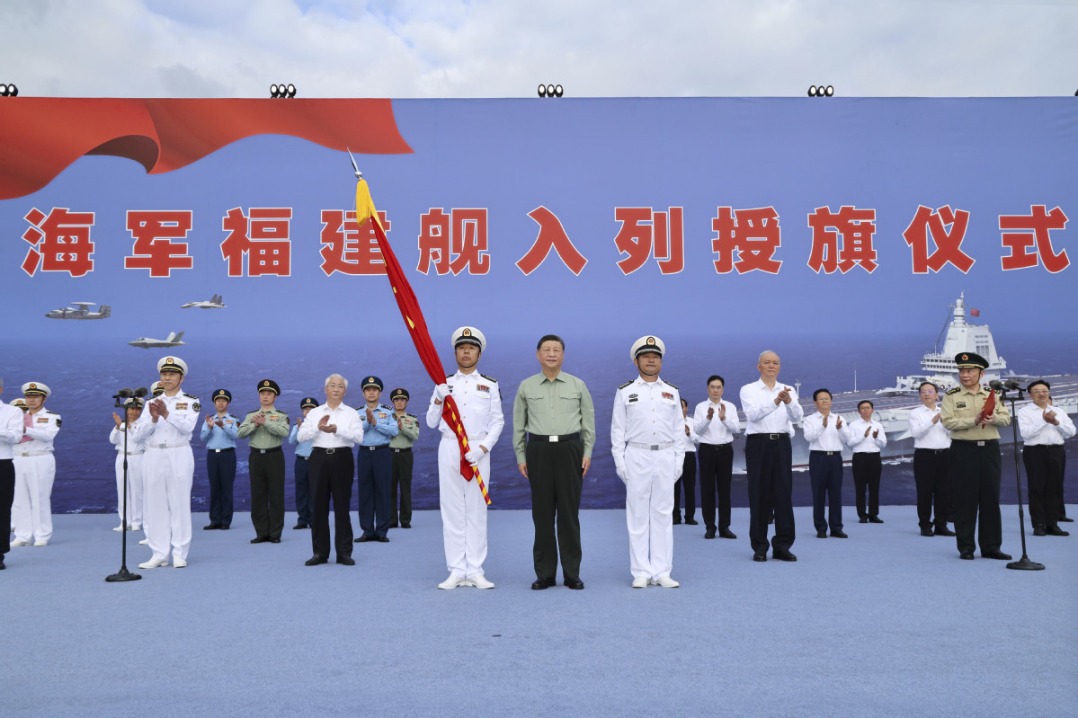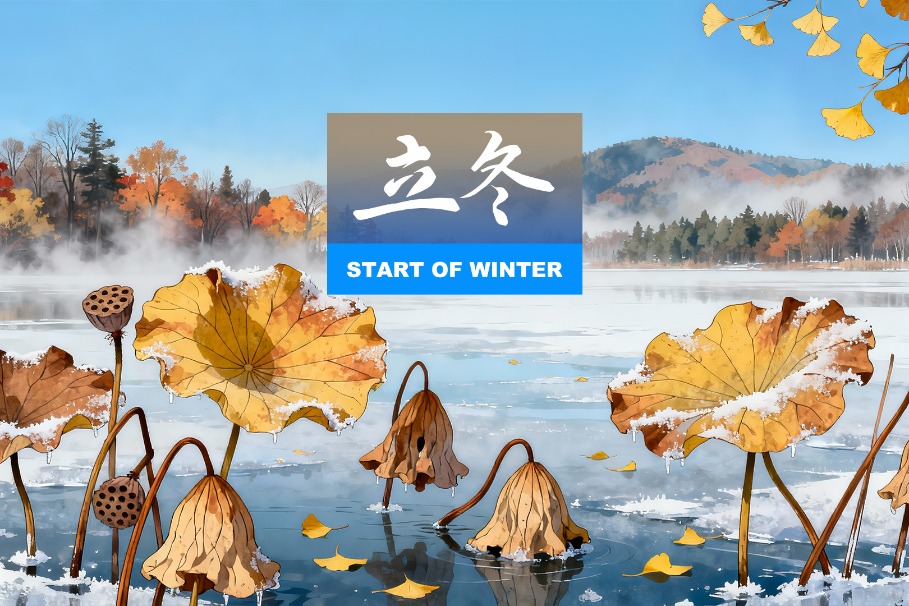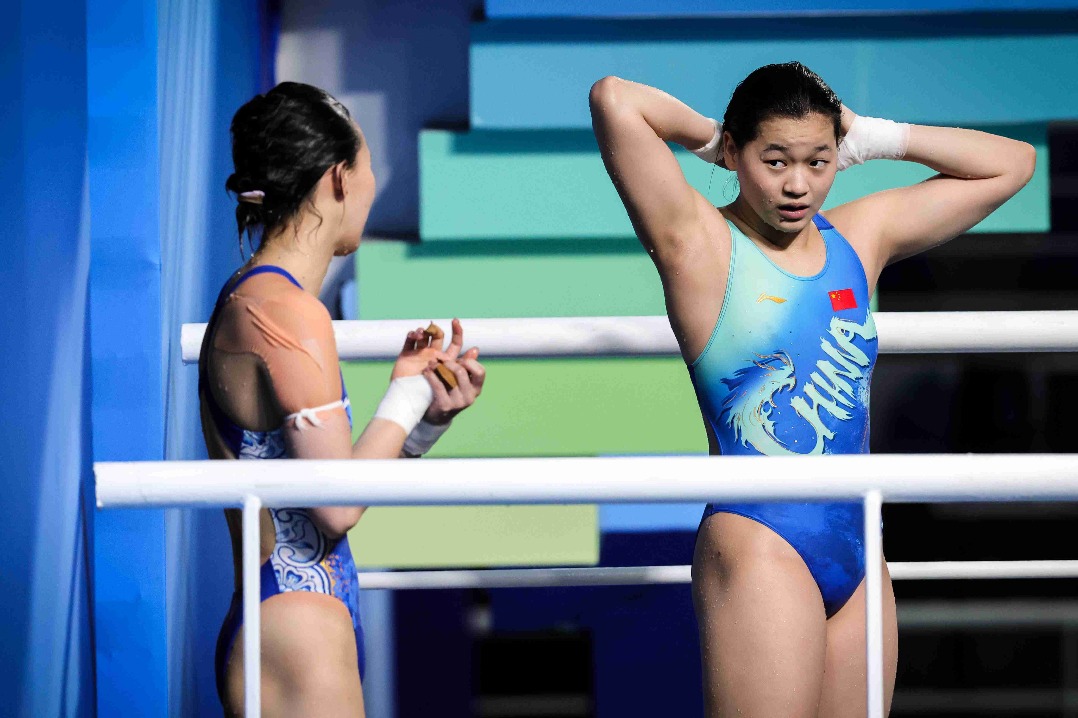Library revives spirit of dialogue in bilateral ties

Inside the China Gallery of the Richard Nixon Presidential Library and Museum in California, one photograph immediately draws the eye. It captures a moment that reshaped global history: On Feb 21,1972, Air Force One touched down in Beijing and US president Richard Nixon stepped onto Chinese soil. After more than 20 years of estrangement, the leaders of two great nations reached out to one another.
"You have reached out your hand across the world's widest ocean to shake mine," premier Zhou Enlai told Nixon, who later described the visit as "the week that changed the world".
More than half a century later, amid shifting geopolitical winds, that memory still resonates as a reminder of what dialogue can achieve.
"We welcome every Chinese American, every visitor from China to come to the library ... to appreciate history, and to help promote understanding between our two sides" said Charles Zhang, treasurer of the Richard Nixon Foundation board of directors, who moved from China to the United States in the 1980s as bilateral ties normalized.
Located in Yorba Linda on land once owned by Nixon's family, the 3.64-hectare campus includes the farmhouse where he was born in 1913 — now a national historic landmark that preserves his childhood roots. It serves not only as a museum, but also as the presidential library and final resting place of the 37th US president and his wife, Pat Nixon.
Nixon's visit to China broke a decades-long diplomatic freeze. It reshaped the global balance of power, laying the groundwork for a new era of US-China relations.
Carrying forward that legacy, the Nixon Foundation and Chapman University launched this week the Nixon Library-Chapman Executive Education Program on US-China Business and Economics. It aims to help Chinese business leaders navigate the US market and foster constructive economic engagement.
Joe Lopez, acting president and CEO of the foundation, said Nixon's belief in dialogue remains relevant today.
"He believed that peace begins when nations start talking to one another. Today, the United States and China are the two great powers in the world, and our future will depend on cooperation, much of which happens through business and entrepreneurship," he said.
Standing in the museum that preserves Nixon's papers and the rooms he once walked through, Lopez encouraged participants to learn "with wisdom, courage and vision".
Many participants are Chinese entrepreneurs in sectors such as electronics, textiles, food services and cosmetics. Over the three-week program, they will study topics including trade trends, real estate investment and the use of artificial intelligence in business growth. Professors will also guide them through legal safeguards and opportunities in the US capital markets.
Mutual understanding
For Robert Koepp, a professor of business and economics at Chapman University in Orange, California, the program offers something foundational: mutual understanding.
"We're an open society and many people from China are here doing their business," Koepp said. "But it's important to understand how the American system works. This program helps newcomers navigate opportunities, and it also helps us as the educators to understand their perspectives."
Conflict should always be the last resort in international relations, he said. "If communication is successful, people don't have to have conflict." Even during periods of economic tension, Koepp believes there remain "real opportunities to invest in America and develop business here".
As part of the program, participants will visit the Chinese company JD Logistics' US headquarters to gain firsthand exposure on how Chinese global supply chain networks operate in the US, providing a practical example of how cooperation continues to evolve in contemporary business settings.
For the program's organizers, economic exchange is not only commercial but also about cultural and human aspects.
"He (Nixon) acted with leadership, vision and courage," said Jane Zhang, director of tourism, culture and education at the Nixon Library. "We feel an obligation to continue that legacy to promote peace and understanding among nations."
Trade is one of the most direct and effective forms of people-to-people connection, she said.
Today's Top News
- Xi attends commissioning of China's Fujian aircraft carrier
- Xi congratulates Paul Biya on re-election as president of Cameroon
- Thai king to pay state visit to China
- Mars orbiter snaps images of interstellar object
- Gold VAT trade reform to bring healthier order
- High-standard Hainan FTP emphasized






























